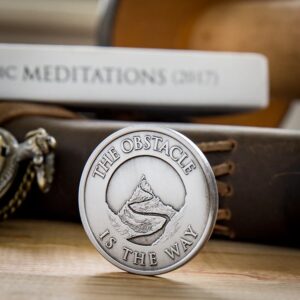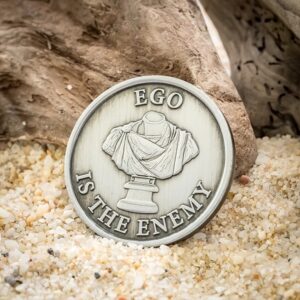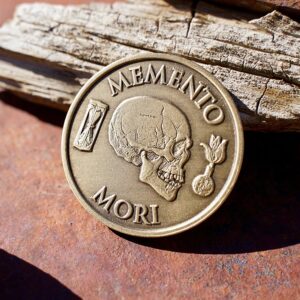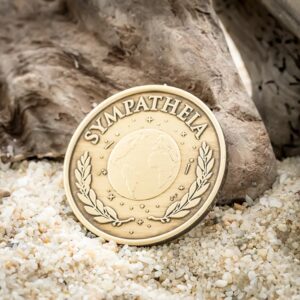Could some ancient and obscure pages—the private diaries of one of Rome’s greatest emperors (Marcus Aurelius), the personal letters of one of Rome’s best playwrights and wisest power brokers (Seneca), the lectures of a former slave and exile, turned influential teacher (Epictetus)—really contain anything relevant to modern life?
The answer, it turns out, is yes. They contain some of the greatest wisdom in the history of the world.
Stoicism has just a few central teachings. It sets out to remind us of how unpredictable the world can be. How brief our moment of life is. How to be steadfast, and strong, and in control of yourself. And finally, that the source of our dissatisfaction lies in our impulsive dependency on our reflexive senses rather than logic.
Here are 7 Ancient Stoic tenets to keep top of mind, to apply to your daily thought processes, and to practice today and every day:
***
MEMENTO MORI
“Let us prepare our minds as if we’d come to the very end of life. Let us postpone nothing. Let us balance life’s books each day. . . .The one who puts the finishing touches on their life each day is never short of time.”
— Seneca, Moral Letters, 101.7b– 8a
There was a tradition in ancient Rome to celebrate the return of a victorious military general with a drawn-out spectacle to sanctify the triumphant leader. On the day of his parade, the victor wore a crown and a purple, gold-adorned toga, otherwise reserved for kings. His four-horse chariot parted the streets lined with thanks-givers chanting “io Triumphe!” The roars of “Hurray, O Triumph” was muffled by the whisper of slave, positioned deliberately in the chariot behind his master’s throne, “Memento Mori, Memento Mori, Memento Mori,” the slave echoed. “Remember thou art mortal.” “Remember, you too must die.” The perfect reminder during a man’s momentary immortalization.
“Live each day as if it were your last” is a cliché. Plenty say it, few actually do it. How reasonable would that be anyway? Surely Seneca isn’t saying, in the above quote, to forsake laws and considerations—to find some orgy to join because the world is ending.
A better analogy would be a soldier about to leave on deployment. Not knowing whether they’ll return or not, what do they do? They get their affairs in order. They handle their business. They tell their children or their family that they love them. They don’t have time for quarreling or petty matters. And then in the morning they are ready to go—hoping to come back in one piece but prepared for the possibility.
In Meditations, Marcus Aurelius wrote, “You could leave life right now. Let that determine what you do and say and think.” That was a personal reminder to continue living a life of virtue NOW, and not wait.
AMOR FATI
“Don’t seek for everything to happen as you wish it would, but rather wish that everything happens as it actually will— then your life will flow well.”
— Epictetus, Enchiridion, 8
“It is easy to praise Providence for anything that may happen if you have two qualities: a complete view of what has actually happened in each instance and a sense of gratitude. Without gratitude what is the point of seeing, and without seeing what is the object of gratitude?”
—Epictetus, Discourses, 1.6.1– 2
Something happened that we wish had not. Which of these is easiest to change: our opinion or the event that is past?
The answer is obvious. Accept what happened and change your wish that it had not happened. Stoicism calls this the “art of acquiescence”— to accept rather than fight every little thing.
And the most practiced Stoics take it a step further. Instead of simply accepting what happens, they urge us to actually enjoy what has happened— whatever it is. “Not merely bear what is necessary, still less conceal it….but love it.” The great philosopher Friedrich Nietzsche, many centuries later, coined the perfect expression to capture this idea: amor fati (a love of fate). “My formula for greatness in a human being is amor fati,” Nietzsche said, “that one wants nothing to be different, not forward, not backward, not in all eternity. Not merely bear what is necessary…but love it”
To wish for what has happened to happen is a clever way to avoid disappointment because nothing is contrary to your desires. But to actually feel gratitude for what happens? To love it? That’s a recipe for happiness and joy.
PREMEDITATIO MALORUM
“This is why we say that nothing happens to the wise person contrary to their expectations.”
— Seneca, On Tranquility of Mind, 13.3b
Premeditatio malorum (“the pre-meditation of evils”) is a Stoic exercise of imagining things that could go wrong or be taken away from us. It helps us prepare for life’s inevitable setbacks and develop resilience in the face of uncertainty. . We don’t always get what is rightfully ours, even if we’ve earned it. Not everything is as clean and straightforward as we think they may be. Psychologically, we must prepare ourselves for this to happen.
“What is quite unlooked for is more crushing in its effect, and unexpectedness adds to the weight of a disaster. This is a reason for ensuring that nothing ever takes us by surprise. We should project our thoughts ahead of us at every turn and have in mind every possible eventuality instead of only the usual course of events…
Rehearse them in your mind: exile, torture, war, shipwreck. All the terms of our human lot should be before our eyes.”
By doing this exercise, Seneca was always prepared for difficulty and prepared to meet any fate. Which is a good thing—because nearly every single one of those things actually happened to him. And from what we know, he faced each with bravery, strength and understanding. and always working that disruption into his plans. He was fitted for defeat or victory.
SYMPATHEIA
“Meditate often on the interconnectedness and mutual interdependence of all things in the universe. All things are mutually woven together and therefore have an affinity for each other—for one thing follows after another according to their tension of movement, their sympathetic stirrings, and the unity of all substance.”
—Marcus Aurelius, Meditations, 6.38
Perhaps the most radical idea in all of Stoicism: Sympatheia is the belief in mutual interdependence among everything in the universe, that we are all one. You will find this link between all beings throughout the works of Marcus Aurelius, Epictetus, and Seneca. In Meditations, a book written only to himself, Marcus refers to the common good more than 80 times, self-identifying not just as a citizen of Rome, but of the World.
Marcus knew that reminding himself of the limitations of his individual perspective would help him be a better person and a better leader. Taking the ‘view from above’ as he termed it, would challenge his preconceptions down at ground level and help him see the world around him more accurately, fairly and empathetically.
This is something we can all do. Sympatheia is an invitation to us to take a step back, zoom out and see life from a higher vantage point than our own. It changes our value judgments, weakens the power that luxury and temptation have over us, reduces the seemingly insurmountable differences between people and races and turns the worries of daily life from anxiety attacks to absurdities.
SUMMUM BONUM
“Indeed, if you find anything in human life better than justice, truth, self-control, courage— in short, anything better than the sufficiency of your own mind, which keeps you acting according to the demands of true reason and accepting what fate gives you outside of your own power of choice— I tell you, if you can see anything better than this, turn to it heart and soul and take full advantage of this greater good you’ve found.”
— Marcus Aurelius, Meditations, 3.6.1
Summum Bonum is an expression from Cicero, Rome’s greatest orator. In Latin, it means “the highest good.”
And what is the highest good? What is it that we are supposed to be aiming for in this life?
To the Stoics, the answer is virtue. If we act virtuously, they believed, everything else important could follow: Happiness, success, meaning, reputation, honor, love. The Stoics didn’t claim this path was easy, or that it would always be recognized or appreciated by those closest to us, only that it was essential. And that the alternative–taking the easy route or the shortcut even if unethical or immoral–was considered only by cowards and fools.
As Marcus Aurelius writes in Meditations,
“Just that you do the right thing. The rest doesn’t matter. Cold or warm. Tired or well-rested. Despised or honored. Dying…or busy with other assignments.”
To the ancients, if we let virtue lead the way, every step we take will be safe.
THE OBSTACLE IS THE WAY
“While it’s true that someone can impede our actions, they can’t impede our intentions and our attitudes, which have the power of being conditional and adaptable. For the mind adapts and converts any obstacle to its action into a means of achieving it.”
— Marcus Aurelius, Meditations, 5.20

The inspiration for the international bestseller The Obstacle Is The Way by Ryan Holiday, a line, plucked from the pages of Marcus Aurelius’s private Meditations nearly 2000 years ago, is a timeless, life-changing lesson:
“The impediment to action advances action. What stands in the way becomes the way.”
The world is constantly testing us. We set out to do something and it’s more trying than we expect. We face resistance. We get criticized. We run out of options. We experience technical difficulties. What will we do?
Marcus would say that the Stoic finds a way to turn every negative into a positive. In this famous line, what he’s suggesting is that—no matter how bad or seemingly undesirable a situation becomes—we always have the opportunity to practice virtue, to use the situation as an opportunity to be our best selves. We don’t control when things get hard, but we always control how we respond. We can show patience, courage, humility, resourcefulness, reason, justice, and creativity. The things that test us make us who we are.
The Stoic grows stronger and better with every obstacle they face. They rally to every challenge and thrive as a result. So can you.
EGO IS THE ENEMY
“Zeno would also say that nothing is more hostile to a firm grasp on knowledge than self-deception.”
— Diogenes Laertius, Lives Of The Eminent Philosophers, 7.23

Self-deception, delusions of grandeur—these aren’t just annoying personality traits. Ego is more than just off-putting and obnoxious. Instead, it’s the sworn enemy of our ability to learn and grow. Ego is that outsized sense of self-importance, that malignant self-absorption, a belief that one is somehow inherently better and entitled to more than everyone else, what NBA Hall of Fame coach Pat Riley famously called “the disease of me.” It’s the voice whispering in our ear, alternatively, that we’re invincible or that we suck and everyone is plotting against us. Ego is that toxic force that makes real teamwork, empathy, vulnerability and artistry impossible.
As Epictetus put it, “It is impossible for a person to begin to learn what he thinks he already knows.” Today, we will be unable to improve, unable to learn, unable to earn the respect of others if we think we’re already perfect, a genius admired far and wide. In this sense, ego and self-deception are the enemies of the things we wish to have because we delude ourselves into believing that we already possess them.
So we must meet ego with the hostility and contempt that it insidiously deploys against us— to keep it away, if only for twenty-four hours at a time.
Name one situation you’ve ever been in that called for more ego. It repulses advantages and opportunities. It’s a magnet for enemies and errors.
Whatever we’re doing in life—whether we’re aspiring to do something, experiencing success or in the middle of difficulty—ego is the enemy every step along the way.
Explore Our Daily Stoic Store




